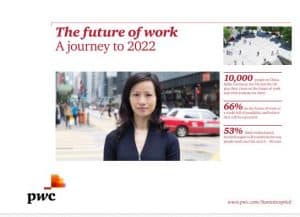 There is much general discussion about the Fourth Industrial Revolution, The Future of Work and other speculative work-related concepts. Klaus Schwab of the World Economic Forum wrote:
There is much general discussion about the Fourth Industrial Revolution, The Future of Work and other speculative work-related concepts. Klaus Schwab of the World Economic Forum wrote:
“We stand on the brink of a technological revolution that will fundamentally alter the way we live, work, and relate to one another. In its scale, scope, and complexity, the transformation will be unlike anything humankind has experienced before. We do not yet know just how it will unfold, but one thing is clear: the response to it must be integrated and comprehensive, involving all stakeholders of the global polity, from the public and private sectors to academia and civil society.”
For the purposes of this blog “work” is the focus and health and safety the discussion points. Occupational health and safety (OHS) professionals have a unique opportunity to participate in the early stages of this societal disruption. But there is also a risk that OHS could miss out.
 The PricewaterhouseCooper (PwC) paper on The Future of Work is an indication of this risk. There is no mention of safety in the paper. Health is mentioned repeatedly but almost only in the context of management through the Human Resources (HR) functions. A strong element of the HR activity in the PwC report is the application of Corporate Social Responsibility (CSR).
The PricewaterhouseCooper (PwC) paper on The Future of Work is an indication of this risk. There is no mention of safety in the paper. Health is mentioned repeatedly but almost only in the context of management through the Human Resources (HR) functions. A strong element of the HR activity in the PwC report is the application of Corporate Social Responsibility (CSR).
In many workplaces and the disciplines mentioned above, the OHS professional is sidelined from these strategic considerations. The mental health of workers and industrial relations has been the HR’s purview with traumatic or physical injuries being the realm of OHS.
CSR has almost entirely been handled through Marketing and Communications and whoever has to write the Annual Report and the Sustainability supplement. OHS’s involvement has been almost entirely the provision of the incident statistics.
Unless the OHS profession can justify its role in preparing companies and workers for the future of work, it will continue to be seen as, at best, a fringe consideration that is likely to be replaced by automation or, at worst, a person on the edge of the crowd craving attention by jumping up and down yelling Me! Me! Me! To avoid irrelevance, in the future, the OHS professionals and their representative bodies need to:
- Takeover the stewardship of workplace mental health by showing the evidence that mental health cannot be separated from physical health and vice versa.
- Prick the pomposity of Corporate Social Responsibility by challenging the corporate marketing to substantiate the claims of social benefit.
- Apply the CSR concepts within the corporations prior to them being applied externally.
- Strengthen and promote the concept of Total Cost of Incident/Injury to provide an accurate estimation of the social cost of the exploitation of workers and the neglect of worker health, safety and welfare.
- Become involved in the Return-To-Work processes by arguing for a coordination role in the continuity of labour productivity.
- Advocate for the health, safety and welfare of workers as they navigate through the impending workplace disruption and short-term career cycles.
OHS professionals are very familiar with the physical and mental impacts of organisational restructures. Well, society is undergoing a level of restructuring with similar impacts on people as well as workers. OHS needs to recognise this and apply its harm and injury prevention skills to minimise the adverse impacts of this social restructuring and, at the same time, show its legitimacy and relevance.
An audio recording of this article and others can be found through SafetyAtWorkBlog’s SoundCloud channel.

It is a moral duty of the employer to look after the safety and welfare of the workers. Safety is a serious issue and most important in hazardous industries where workers work in vicinity of fire or have the possibility of encountering thermal hazards.OHS professionals needs to be more involved so that mental and physical health of workers is considered imperative.
OHS continues to undersell itself at the conceptual level. It sidesteps the powerful message from the ripple effect on the wider community from injury, death and disease and fails to sell the positive impact OHS principles can have on business. That’s OK while the incidence of work harms are slowly gradually reducing, but not when the whole basis of working life is being overturned. Indeed, the very concept of the value and meaning of work will be redefined in the future. Let’s hope dangerous work disappears quickly from the developed world, then we have no longer have to worry about this!
I have seen recent reports are stating that the cost to the community on w/comp and injury management is a multiplier of about 3.5 times the actual. I find it difficult to accept that this has gone down from the 4 times multiplier that we used 12 years ago, given the costs medical treatment, CPI increases in wages and benefits and the NDIS implementation as well as the decline in suitable rehabilitative job roles. Perhaps this is part of corporate marketing to substantiate the claims of social benefit, In which case I agree totally with the points Kevin has raised as challenges. A couple of years ago Kevin penned an article about the 1959 construction industry rule book which was being used in J Division at Pentridge, which clearly showed nothing had changed in respect of what to look at for as hazards and how supervisors should do their jobs. As a former boss once told me “take care of the cents and the dollars will take care of themselves”. This will hold true no matter how business evolves and changes. There will always be risks and hazards but unless we actively get involved and identify and bring them to attention of organisations and management in a positive manner we risk becoming irrelevant.